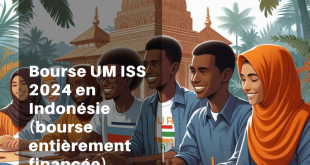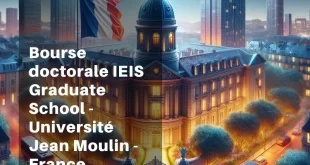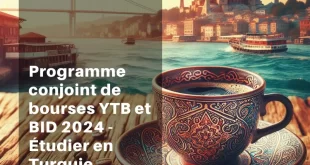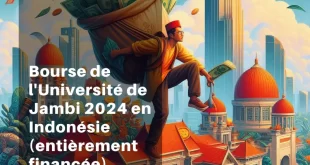Vacancy number: 14145
Project description
How can we use an exhibition to make an emerging topic like quantum science and technology visible and tangible? In this project, we will study the impact of an exhibition about quantum science and technology on the knowledge and attitude of
various target audiences about science. Quantum science and technology is an emerging field of research that is expected to have a large impact on both science and society going forward. For instance, faster computing and new ways of data protection are envisioned. There are little tangible examples of the concepts explaining quantum science and technology, and these are usually not studied. The results of this project will add to the understanding of the effect of outreach regarding quantum science and technology on the engagement of the public with this topic. It will be used to give advice on the further implementation and development of evidence-based outreach on quantum and similar intangible science and technology.
Key responsibilities
In this postdoctoral project, you will be responsible for an existing quantum exhibition that will be translated to the Dutch situation. You will develop and pursue a research method to study the impact of this exhibition on the attitude and
knowledge of specific target groups. You will collaborate with a multidisciplinary team of science communication experts and quantum physicists. You will write an academic paper on your findings and you will disseminate your results to relevant partners in the museum world and the quantum world. You will build a network of research and practice partners. While teaching is not required in this postdoctoral position, there are possibilities for student supervision and teaching in our group and institutes if you are interested.
Selection Criteria
- PhD in museum studies, communication research, science communication, media studies or other relevant directions, with an interest in science communication and new technologies;
- Experience with the practical organization of science communication activities.
- Experience with relevant social science research methods;
- Excellent social skills and pro-active attitude, enabling you to work with various stakeholders;
- Excellent communication skills and fluency in English;
- Affinity with new technologies and fundamental sciences. Please note: although having some basic knowledge about quantum science andtechnology would be beneficial, we do not require that this is the case.Quantum expertise is available within the Research Group.
The project is led by dr. Julia Cramer and dr. Anne Land. A PhD researcher working on ‘evidence-based outreach’ will collaborate in this project.
The position is funded by the Growth Fund of Quantum Delta NL, a Dutch collaboration that is creating a national ecosystem for excellence in quantum innovation, for highly talented professionals to bring quantum computers, quantum networks and quantum sensors to the market. One of the action lines focuses on the Ethical, Legal and Societal aspects of quantum technology. We are part of this action line, focusing on the societal impact.
The research group ‘Quantum and Society’ studies the societal impact of quantum technology from a science communication perspective. We are an interdisciplinary group affiliated with the Faculty of Science, connected to quantum physics (LION) and Science Communication and Society (IBL), using methods from, and collaborating with, the social sciences.
Our research group focuses on studying the boundary between quantum technology and society via:
- Content analyses of existing communication about quantum science and technology such as outreach by experts, media coverage, and policy documents.
- Development of instruments to measure the attitude and engagement of specific societal groups towards and with quantum technology and their concerns, questions and expectations of quantum technology.
- Research into the effect of empirically developed interventions on participants in such interventions.
Leiden University
Leiden University is one of Europe’s leading international research universities. Thanks to its committed and inspired employees, the university enjoys a leading role in academic research and education. Leiden also scores very well every year in
prominent rankings. This means that, to maintain our position, the bar is set very high. Regardless of the work you do at our university, you are always encouraged to broaden your horizons, develop your talents and reach your full potential.
Research at our faculty of Science
The Faculty of Science is a world-class faculty where staff and students work together in a dynamic international environment. It is a faculty where personal and academic development are top priorities. Our people are committed to expand fundamental
knowledge by curiosity and to look beyond the borders of their own discipline; their aim is to benefit science, and to make a contribution to addressing the major societal challenges of the future.
The research carried out at the Faculty of Science is very diverse, ranging from mathematics, information science, astronomy, physics, chemistry and biopharmaceutical sciences to biology and environmental sciences. The research activities are organised in eight institutes. These institutes offer eight bachelor’s and twelve master’s programmes. The faculty has grown strongly in recent years and now has more than 2,500 staff and almost 6,000 students. We are located at the heart of Leiden’s Bio Science Park, one of Europe’s biggest science parks, where university and business life come together.
For more information, see www.universiteitleiden.nl/en/science and https://workingat.leiden.edu/
Diversity and inclusion
Fostering an inclusive community is a central element of the values and vision of Leiden University. Leiden University is committed to becoming an inclusive community which enables all students and staff to feel valued and respected and to develop their full potential. Diversity in experiences and perspectives enriches our teaching and strengthens our research. High quality teaching and research is inclusive.
Terms and conditions
The starting date of the postdoctoral position is ideally in the first quarter of 2024. We offer a 1 year position. The salary range is from € 3.226 – € 5.090. gross per month (pay scale 10 in accordance with the Collective Labour Agreement for Dutch
Universities). Leiden University offers an attractive benefits package with additional holiday (8%) and end-of-year bonuses (8.3 %), training and career development and sabbatical leave. Our individual choices model gives you some freedom to assemble your own set of terms and conditions. For international spouses we have set up a dual career programme. Candidates from outside the Netherlands may be eligible for a substantial tax break.
Applications
To apply for this vacancy, please send an email to Sanne Romp (s.romp@biology.leidenuniv.nl), with ‘Application Postdoc Quantum & Society’ in the subject line. Please ensure that you attach the following:
- A short motivation (max one page) on how your research interests and background fit this topic and our team;
- A Curriculum Vitae;
- Contact details of two people that can provide a reference if requested.
Timeline
The closing date for applications is 7 November 2023.
Caractéristiques de l'emploi
| Catégorie emploi | Postdoctoral |
 medjouel.com Etudes Non Stop
medjouel.com Etudes Non Stop



